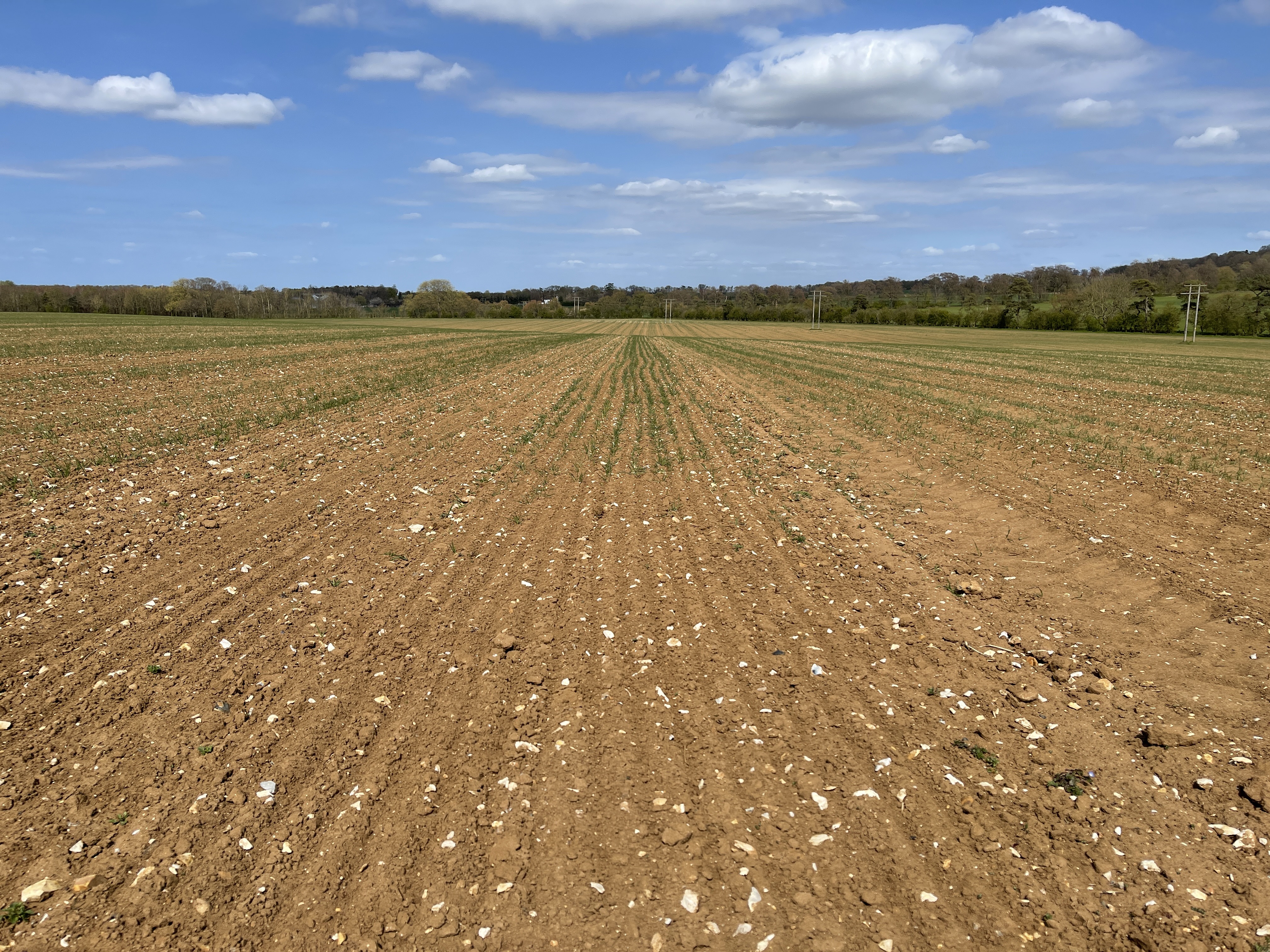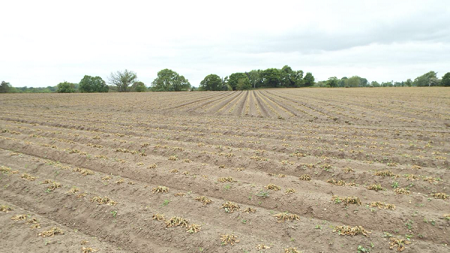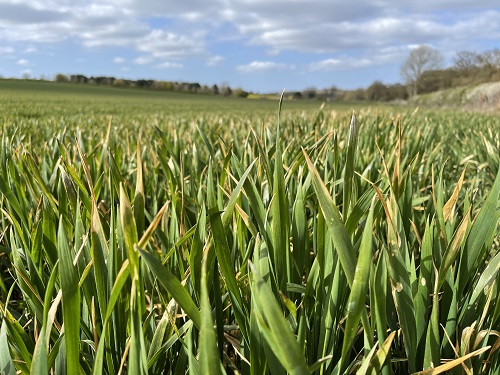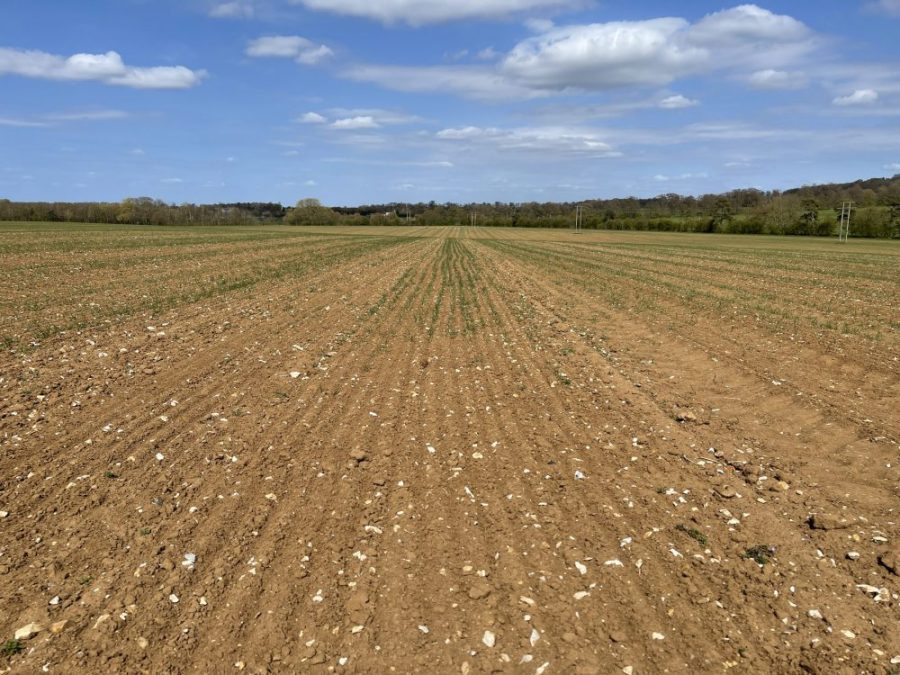
The start to the spring cropping season has undoubtedly been stressful for many. After a cold winter, April has been plagued by a lack of rain, coupled with unhelpfully low temperatures and frosts overnight.
And with more weather uncertainty likely in the weeks ahead, growers could help minimise the impact of crop stress and protect potential by optimising the benefits of biostimulants, says Stuart Sutherland, technical manager at Interagro. “With air and soil temperatures up and down like a yoyo and the drying of soils across the country, crop performance could already be under pressure. Throw in the spring drilling delays and uncertainty of what the weather will do over the next few weeks, and we believe that the inclusion of Bridgeway in the spring spray programme will help growers to reduce crop stress whilst protecting potential.”
Proven to help minimise stress and improve marketable yield and quality in a range of crops over the past three years, Bridgeway is an amino acid biostimulant designed to help crops reach their genetic yield potential and reduce the impact of abiotic stress by improving plant health. “Feeding a crop Bridgeway guarantees the supply of amino acids for building protein, critical for plant health. Trials have proven that Bridgeway-treated crops are more likely to reach their genetic yield and quality potential.”
So what are the main ways Bridgeway could help this spring?
- Boost root growth in dry soils
“Drought stress caused by a lack of rain is now a major concern for spring crop establishment in many parts of the country,” says Stuart. “Poor access to nutrition as a result of dry soils is also evident in some crops. Physiological processes in plants are impaired by drought stress, including photosynthesis, enzyme activity, cell membrane stability, pollen viability and ultimately yield and quality.“
“Applying 1-2 l/ha of Bridgeway will help to stimulate root growth and increase the ability of the crop to access nutrition and moisture from depth. This will help to improve crop establishment and aid growth in challenging growing conditions.”
- Protect against spring frost
Frosts can cause severe damage to crops, with recovery depending partly on the variety and also on the growth stage. In the case of potatoes, while affected crops can normally resprout, growth will be set back weeks and will likely impact final yield and lifting date, explains Stuart.
“Applications of Bridgeway ahead of frost will help to increase Brix levels, lowering the freezing point in plants and making the crop more tolerant to frost.”
“Post-frost, 1 l/ha Bridgeway will help to speed up crop recovery by stimulating new growth, and provide an energy boost by increasing the rate of photosynthesis.”
- Minimise the impact of liquid fertiliser scorch
Liquid fertiliser can cause crop scorch, particularly when followed by harsh winds and overnight frosts, and is evident in some cereal crops at the moment, points out Stuart. “The reduction in green leaf area can reduce photosynthesis and impact potential.
“1 l/ha Bridgeway can be applied ahead of liquid fertiliser applications to minimise the risk of scorch. It can also be applied to affected crops to help the crop recover, by reducing crop stress, increasing chlorophyll concentrations and by increasing the rate of photosynthesis.”
- Reduce stress to minimise disease impact
Stressed barley crops are at greater risk of ramularia.
Ramularia is often present in plants but is asymptomatic until it enters its necrotic stage, which is triggered by environmental stress, explains Stuart.
“Managing the crop to reduce stress is therefore an important strategy that can be adopted by growers.”
“The most important trigger is the stress of flowering which causes a significant change in the barley plant’s metabolism. The plant begins to mobilise assimilates to the developing grain and essentially gives up on its own natural defences, shifting resources to the ear.”
“Other environmental stresses such as waterlogging, high light intensity and drought can all increase the disease, bringing on more severe symptoms.”
“Early applications of 1-2 l/ha Bridgeway will help to minimise stress in the crop and elicit host defence mechanisms within the plants to help fend off the disease. This will help to preserve green leaf area and protect yield potential.”
For specific crop and timing recommendations, download Interagro’s latest biostimulant bulletin:

For more information about how Bridgeway can help in other crops, like sugar beet and potatoes visit:
https://www.interagro.co.uk/beet-stress-this-spring-with-bridgeway/
https://www.interagro.co.uk/stress-free-higher-yielding-potatoes-with-bridgeway/




